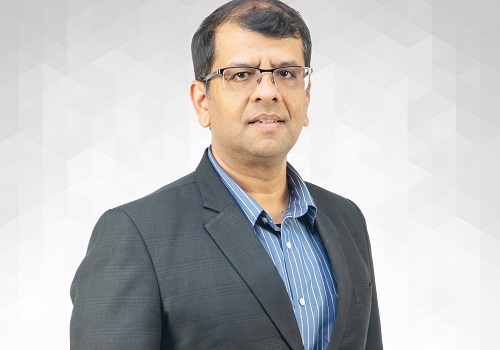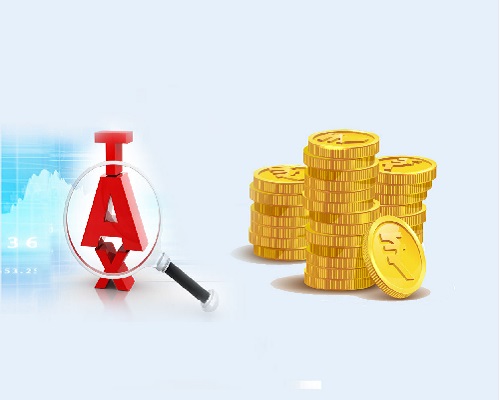All About Taxes That are Applied to Personal Income

Follow us Now on Telegram ! Get daily 10 - 12 important updates on Business, Finance and Investment. Join our Telegram Channel
Personal Income is subject to Income Tax in India. Every individual is required to exhibit their income and file Income Tax in India. As a taxpayer, it is necessary to understand the taxes applied on personal income and about income tax saving options.
What is Income Tax?
Income Tax is the tax levied by the Government of India on the gross income earned by every individual. It is in accordance with the Income Tax Act, 1961. Resident Indians have to pay taxes for Income earned from India and abroad. Non - Resident Indians have to pay taxes on the Income generated only in India.
Financial Year and Assessment Year
Financial Year is the period from 1st April to 31st March. The following year when the Income Tax is calculated is the Assessment year. For example, the Financial Year is from 1st April 2020 - 31st March 2021, and the Assessment Year is from 1st April 2021 - 31st March 2022.
Sources of Income
Various sources of Income are accountable for Income Tax. Income from the following sources is considered:
1. Salary - Salary, leave encashment, etc
2. House Property - Income generated from a house or any building in the form of rents
3. Capital Gains - Income from profit earned from capital assets
4. Business
5. Other sources
Deductions
Expenses towards the following investments and savings are eligible for tax benefits from the income tax. The details are elaborated in Section 80C of the Income Tax Act, 1961. Here are a few expenses that qualify for deductions based on certain terms and conditions.
1. Investments made on savings schemes such as Equity Linked Savings Scheme, National Savings Certificate, Life Insurance, a guaranteed income plan, Public Provident Fund, etc., qualify for deduction up to ₹1,50,000.
2. Medical insurance premium
3. Interest on home loans
4. Donations made for social welfare
There are different income tax saving schemes and investments that help you avail of tax benefits under the Income Tax Act.
Exemptions
Exemptions include the type of income that is excluded from the Gross Income while calculating Income Tax. It is enlisted in Section 10 of the Income Tax Act. Here are a few examples:
1. House Rent Allowance
2. Leave Travel Allowance
3. Relocation Allowance
Income Tax Rates
Tax payers are classified into different categories called Tax Slabs. Each Tax Slab has different tax rates. The Income Tax Department has introduced a ‘New Tax Regime’ for the Assessment Year, AY21-22.
As per the Old Tax Regime, the tax rates were as follows:
| Income | Tax Payable |
| Up to ₹2.5 Lakhs | Nil |
| From ₹2.5 Lakhs to 5 Lakhs | 5% of taxable Income+4% Cess |
| From ₹5 Lakhs to 10 Lakhs | 20% of Income above ₹5 lakhs+4% Cess |
| Above ₹10 Lakhs | 30% of Income above ₹10 lakhs +4% Cess |
As per the New Tax Regime, the Tax Rates are as follows:
| Income | Tax Payable |
| From 2.5 Lakhs to 5 Lakhs | 5% of taxable Income + 4% cess |
| From 5 Lakhs to 7.5 Lakhs | 10% of taxable income + 4% cess |
| From 7.5 Lakhs to 10 Lakhs | 15% of taxable income + 4% cess |
| From 10 Lakhs to 12.5 Lakhs | 20% of taxable income + 4% cess |
| From 12.5 Lakhs to 15 Lakhs | 25% of taxable income + 4% cess |
| Above 15 Lakhs | 30% of taxable income + 4% cess |
However, according to the New Tax Regime, which offers lower rates, the Tax Payer cannot avail of certain deductions and exemptions.
In addition to the income tax, a surcharge is levied when the total income exceeds ₹5 million. There is also the Health and Education Cess charged at 4% of the Income Tax and Surcharge if applicable.
To know more about term plan, term insurance, long term savings & retirement plan visit PNB MetLife website.
Disclaimer:
The above note prepared based on our understanding of Income tax laws at broad level. Clients are advised to consult their tax consultant before taking any tax position.
Tax benefits under sec 80(c) & 80(d). Tax benefits are as per the Income Tax Act, 1961, & are subject to amendments made thereto from time to time. Please consult your tax consultant for more details. Cash payment is not eligible for tax benefit under Sec 80D of Income Tax Act, 1961.
The aforesaid article presents the view of an independent writer who is an expert on financial and insurance matters. PNB MetLife India Insurance Co. Ltd. doesn’t influence or support views of the writer of the article in any way. The article is informative in nature and PNB MetLife and/ or the writer of the article shall not be responsible for any direct/ indirect loss or liability or medical complications incurred by the reader for taking any decisions based on the contents and information given in article. Please consult your financial advisor/ insurance advisor/ health advisor before making any decision.
PNB MetLife India Insurance Company Limited
Registered office address: Unit No. 701, 702 & 703, 7th Floor, West Wing, Raheja Towers, 26/27 M G Road, Bangalore -560001, Karnataka
IRDAI Registration number 117 | CIN U66010KA2001PLC028883
For more details on risk factors, please read the sales brochure and the terms and conditions of the policy, carefully before concluding the sale.
Goods and Services Tax (GST) shall be levied as per prevailing tax laws which are subject to change from time to time.
The marks "PNB" and "MetLife" are registered trademarks of Punjab National Bank and Metropolitan Life Insurance Company, respectively. PNB MetLife India Insurance Company Limited is a licensed user of these marks.
Call us Toll-free at 1-800-425-6969, Phone: 080-66006969, Website: www.pnbmetlife.com, Email: indiaservice@pnbmetlife.co.in or Write to us: 1st Floor, Techniplex -1, Techniplex Complex, Off Veer Savarkar Flyover, Goregaon (West), Mumbai – 400062, Maharashtra. Phone: +91-22-41790000, Fax: +91-22-41790203.
AD-F/2021-22/117
Beware of Spurious Phone Calls and Fictitious / Fraudulent Offers!
IRDAI is not involved in activities like selling insurance policies, announcing bonus or investments of premium. Public receiving such phone calls are requested to lodge a police complaint.












 320-x-100_uti_gold.jpg" alt="Advertisement">
320-x-100_uti_gold.jpg" alt="Advertisement">












